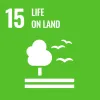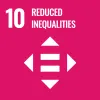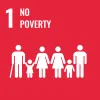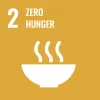Overview
Project Requirement
Project Requirement
Schedule a Google Meet with a Program Advisor
Interested in our programs? We're here to provide expert guidance
- Get Detailed Info
- 20 min One -on-One meeting
- Get expert advise
- Application Guidance

Portugal
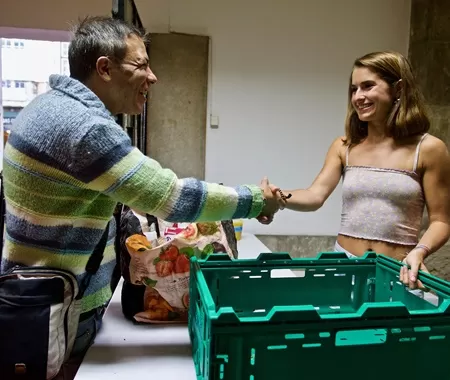
If you are keen to volunteer for a social cause and help several hungry people to have a stomach-full meal, then join us and contribute towards the cause of reducing food waste in Porto.
Volunteering abroad is a great opportunity to acquire new skills, meet new people from different cultures, and grow as an individual. Volunteering Solutions aims to provide you with a wide variety of volunteer programs that focus on immersing into the culture of another country and helping the local communities directly.
Being a volunteer for the Food Waste Management Project would be a perfect choice for gap year travellers, individual volunteers as well as groups, who wish to travel together and combine their efforts in making a difference.
The program is designed to combat food waste while supporting those in need. It achieves this by providing daily meals to those less fortunate, all while engaging the local community. In Portugal, there are many initiatives dedicated to rescuing surplus food and ensuring it reaches those who need it most.
As a part of this program, you will actively contribute to fighting food waste and hunger in a structured system that feeds over 3000 people every day. You will help the local teams collecting, organising and distributing the excess food from restaurants and cafés to fight food waste in the city. Volunteers will support a centre which recovers food, in good conditions, from local restaurants, supermarkets, and cafés and re-distribute it among families, elderly and homeless people in need. These are people who need food support to feed them and their families.
Volunteers can be working across the centres in Porto and their tasks will include collecting the food from local providers, assisting with packaging it, cleaning used containers, assisting with sorting and storage of any food left for the next day, distributing it to the families and clean up at the end of the shift.
To say the least, it’ll be immensely satisfying to volunteer for such a noble cause.
Why is the Project Important ?
Each year, around 1 million tons of food are wasted in Portugal, equating to nearly 274,000 kilograms per day. This amount of food could feed approximately 360,000 people in need across the country.
The majority of food waste occurs in households, with families responsible for 31% of the total waste in Portugal. Agriculture follows as the second-largest contributor. Common causes of food waste include expired food and improper storage practices.
Food waste has a significant environmental impact. It’s not just a social issue—its environmental consequences are profound. Food waste contributes to 8% of global greenhouse gas emissions. This happens because when food rots in landfills, it decomposes and releases methane, a potent greenhouse gas. For every kilogram of food wasted, about 2.5 kilograms of CO2 equivalent are released. Methane emissions account for approximately 25% of global warming.
Additionally, the environmental toll extends to agriculture. Roughly 30% of the resources used to grow food end up being wasted. This includes water, which has the largest footprint of any country due to food waste. According to WWF, around 66 trillion liters of water are wasted each year on food that never gets consumed. For example, throwing away just one kilogram of bananas is equivalent to running a shower for 84 minutes.
After the orientation day, volunteers will be assigned a morning, afternoon or evening shift at the project placement and will work for approximately 4 hours per day depending on the schedule of the project.
Typical schedule of volunteers in Porto is as outlined below :
Typical tasks in the program for volunteers include -
Get involved in food preparation activities if required
Be a part of food collection teams in supermarkets, restaurants and bakeries
Packing of food items in small containers and storing them in refrigerators
Organising the food containers for the beneficiary or family
Helping out in quality control checks
Delivering food to beneficiaries
Please note that the tasks may vary from time to time depending on the requirements at the center.
Volunteers must be 18 years or older at the time of joining the project and should be active, responsible and ready to act. All volunteers must provide a clean criminal background check report prior to joining the program.
Interested in our programs? We're here to provide expert guidance
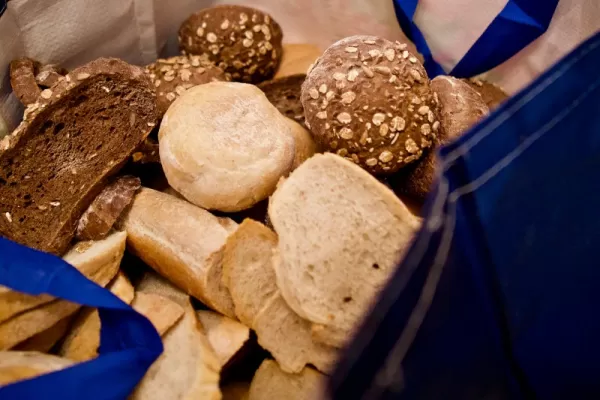
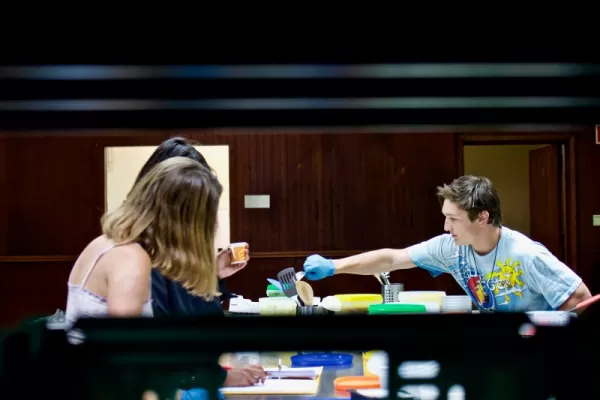
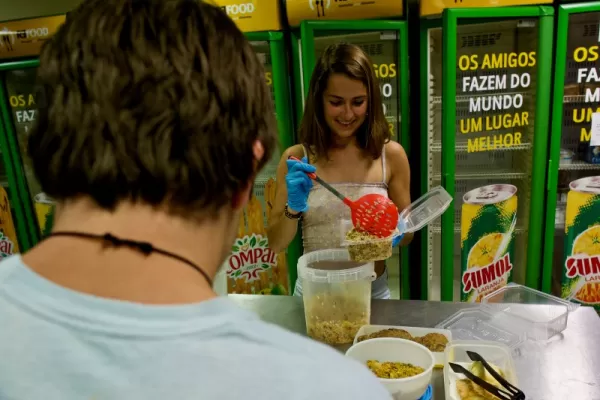
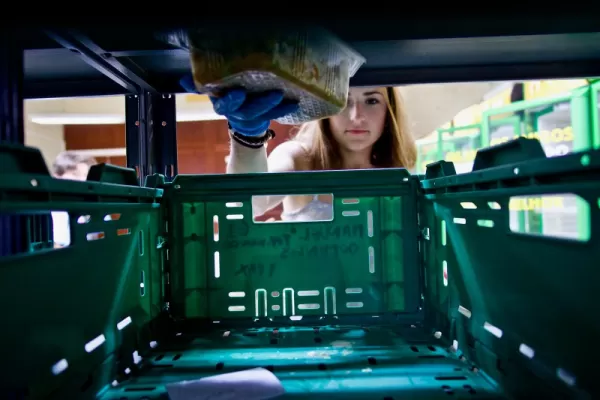
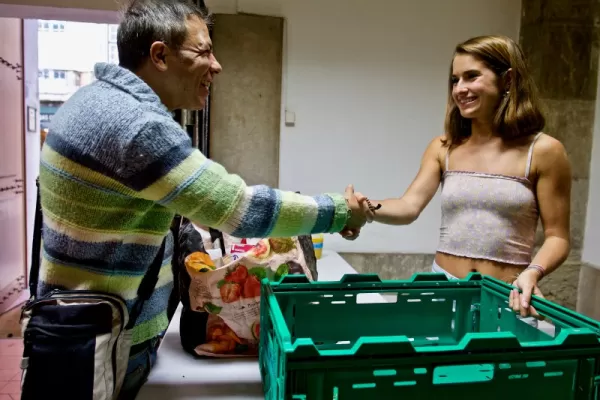
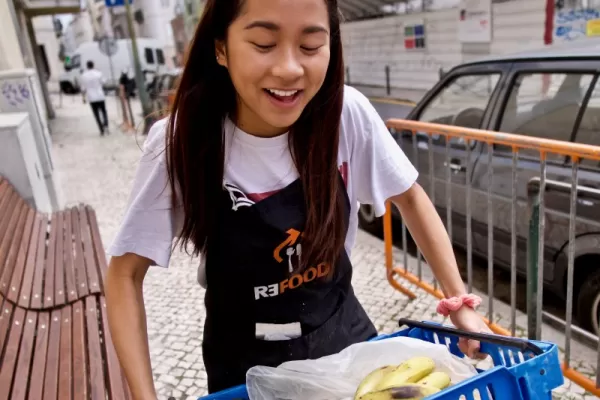
Airport Transfer
You will be picked up on arrival at Porto airport and transferred to the volunteer accommodation. A driver will be waiting for you at the airport when you arrive and the coordinator is reachable 24/7, in case of any travel updates or troubles. For those participants who will already be in Porto beforehand just let us know and we will arrange your pick up from any location in Porto.
Orientation
On the first day of the program, all participants are given an introductory presentation with the group giving further details of the program along with a walking tour of Porto city center for approximately two hours.
Accommodation
Volunteers stay in a dormitory-style hostel along the scenic Douro River in the heart of the city – the perfect retreat for volunteers in Porto.The accommodation is close to the metro and a short walk from São Bento train station and Torre dos Clérigos. The rooms are equipped with air conditioning and bedding. Along with personal touches, like reading lights and power outlets at every bed and individual lockers to store your belongings securely.The hostel has both female and mixed gender dorms.
Private room upgrade can be arranged for an additional fee.The 4 bed mixed dorm room is converted to a private room upon request.
Meals
Volunteers are provided with breakfast, lunch, and dinner every day. Breakfast is served buffet style at the volunteer accommodation.Lunch and dinner are served at a nearby restaurant that offers delicious Portuguese cuisine made with fresh, locally sourced ingredients. Vegetarian, gluten-free, and lactose-free options are available upon request to accommodate dietary needs.
There is a fully equipped shared kitchen in the hostel that you can use to storage your food or to cook your meals.
During your Free Time
The weekends are free for you to get to know Portugal in a better way. We can help you to book the trips that you want to go to any point in the country. Besides that, we have one or two day programs, where you will have unique experiences on your own or in a group.
Volunteers can also join Portuguese Lessons. The language lessons are available for all volunteers, regardless of their starting level. By taking these classes, you will be able and communicate more effectively during your stay!
The language lessons are tailored to each volunteer’s current Portuguese level and are taught by a professional Portuguese teacher. All the classes run from Monday to Friday, and the cost is very affordable.
During your free time and the weekends, you can enjoy our tours and activities, or simply be on your own, relaxing and exploring!
Some of the tours and experiences that you can enjoy during the free time include :-
Douro, Port and Moscatel Tour – Visit the vineyards, taste the different wines and have a typical lunch with amazing views
Minho and Vinho Verde Alvarinho Tour – Visit beautiful Viana do Castelo, Melgaço, and Monção, taste the Vinho Verde and some of the best Portuguese cuisine
Aveiro and Bairrada Sparkling Wine Tour – Visit the beautiful city of Aveiro and get to know its wonders and traditions









04
18
01
15
01
15
05
19
03
17
07
21
05
19
02
16
06
20
04
18
01
15
06
20
03
17
07
21
07
21
04
18
02
16
06
20
04
18
01
15
29
05
19
03
17
07
21
05
12
| Duration |
Program Fee
|
Choose your currency
|
|---|---|---|
| 1 Week | $1043 | |
| 2 Weeks | $1524 | |
| 3 Weeks | $2005 | |
| 4 Weeks | $2487 | |
| 5 Weeks | $2968 | |
| 6 Weeks | $3450 | |
| 7 Weeks | $3931 | |
| 8 Weeks | $4413 | |
| Extra Week | $462 |
Please Note: A registration fee of is charged in addition to the program fee. This fee is valid for one year, during which participants may enroll in multiple programs. A 5% international banking fee applies to credit card payments of program fee made in USD or AUD.
Volunteers stay in a dormitory-style hostel along the scenic Douro River in the heart of the city – the perfect retreat for volunteers in Porto.The accommodation is close to the metro and a short walk from São Bento train station and Torre dos Clérigos. The rooms are equipped with air conditioning and bedding. Along with personal touches, like reading lights and power outlets at every bed and individual lockers to store your belongings securely.The hostel has both female and mixed gender dorms.
Private room upgrade can be arranged for an additional fee.The 4 bed mixed dorm room is converted to a private room upon request.
Volunteers are provided with breakfast, lunch, and dinner every day. Breakfast is served buffet style at the volunteer accommodation.Lunch and dinner are served at a nearby restaurant that offers delicious Portuguese cuisine made with fresh, locally sourced ingredients. Vegetarian, gluten-free, and lactose-free options are available upon request to accommodate dietary needs.
There is a fully equipped shared kitchen in the hostel that you can use to storage your food or to cook your meals.
We encourage volunteers to get in touch with former Volunteering Solutions program participants and also other program participants joining our projects. You are recommended to join the Volunteering Solutions Facebook Group to communicate with other participants. To read alumni interviews from past participants, visit the Meet a Volunteer page on our website.
Lufthansa, Tap Portugal, Emirates, British Airways and Iberia are the top airlines flying to Portugal. You would need a Schengen Visa to travel to Portugal, which should be applied at the respective embassy. No visa is necessary if you are a US Citizen and will be traveling to Portugal for up to 90 days. However, you will need a valid u.s. Passport for at least 3 months from the date of planned return or other travel document recognized by member states of the Schengen agreement. For more details regarding the Visa requirements, it'll be good if you can get in touch with our Program Advisor while applying.
Once you arrive at the airport, our in-country coordinator will be there to be in touch with you. You'll be taken to your accommodation where you can rest before kickstarting your amazing journey.
All participants are recommended to consult their physician or travel doctor before traveling to Portugal.To view the general list of vaccinations recommended for your travel to Portugal, click here.
Yes, for all participants, it is mandatory to have a valid travel medical insurance for their trip. Volunteers have the option to purchase Travel and Medical Insurance at a nominal extra cost from Volunteering Solutions. To provide the best option to our participants, we offer comprehensive insurance coverage in collaboration with a leading insurance provider.
If you already have a valid Travel and Medical insurance, you can email us a copy of the same. It is also advised to bring along the Insurance documents during your trip.
According to a study made by the Institute for Economics and Peace, The Global Peace Index 2025 says that Portugal is the 7th safest country in the world. That, we believe, solves all your doubts. For more information about safety, do take a look at the Pre-departure Guidebook.
As we have limited spots available in our programs and we serve on first come first basis, it is strongly recommended to apply for the program and reserve your spot in the program well in advance. You can book your spot in the program by filling an online form and pay the application fee. Once you complete your application, your individual 'My Account' will be active in which you will receive your placement confirmation after which you can pay the program fees. You can pay the program fees later as well in installments, but 45 days before the program starts.
Volunteers must be 18 years or older at the beginning of the program. Participants under 18 need to provide signed parental consent prior to joining the program.Volunteers need to have an open mind and flexible attitude for working in a new and different environment.The volunteer should bring energy and enthusiasm to make a difference. The participant must be in good health.
Yes, you are welcome to take part in the Programs in Portugal as part of a group. We welcome friends,college/university and corporate groups to volunteer together in our programs in Portugal. Please get in touch with us to request a customized group proposal depending on your group requirements.
Yes, most definitely you can as we believe every participant brings something new to the project. If you do not have previous experience, we offer you the opportunity to have a great start with us. We make international volunteering easy – not only are our Volunteer Abroad opportunities rooted in offering you extensive support, but they are also very affordable.
Yes, we will provide you with the Certificate after successful completion of your program. The certificate is provided on request.
Your program coordinator or a member of the local coordinating team will take you to your placement and introduce you to everyone after giving you a basic orientation about the program, its surroundings and other facilities around the location.
The volunteering programs in Portugal are primarily located in and around Porto, the second largest city in Portugal. You can choose to be a part of the Food Waste Management Program in Porto, Youth Support Program in Porto, Animal Care, Community Support and Surf with Purpose program in Porto.
After you complete your application, your personalized ‘My Account’ will be active. You will need to upload your CV/Resume along with your photo in the same. Our backend team and the placement site takes around 10-12 days to review your application. After we review your CV and documents, your booking is confirmed and booking confirmation is updated in your ‘My Account’. Some projects need a mandatory criminal background check and the same is mentioned in the project info of your program. Approval of your application depends on your qualification and eligibility criteria for each project.
Currency


